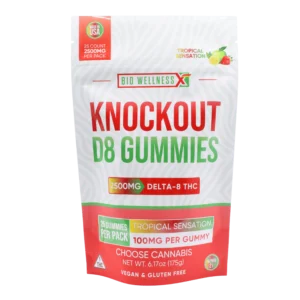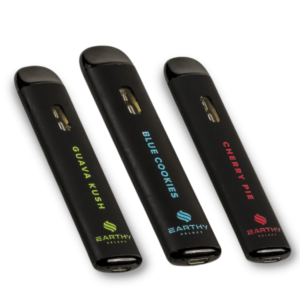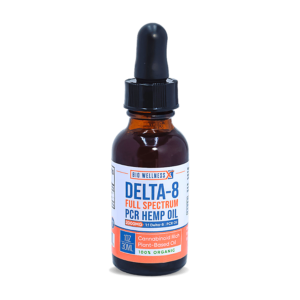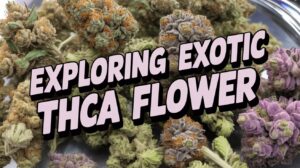This comprehensive guide explores the intricacies of Delta-8 THC’s legality in Oregon. Amidst the evolving landscape of cannabis legalization, understanding Delta-8’s status, a cannabinoid distinct from Delta-9 THC, is crucial.
This guide offers valuable insights into Oregon’s stance on Delta-8, its availability, usage regulations, and potential health implications, providing clarity for those navigating this complex subject.
Key Takeaways
- Delta-8 THC is under heavy restriction in Oregon, with legal debates continuing today.
- The Agriculture Improvement Act of 2018 authorized the production of hemp and removed it from the DEA’s schedule of Controlled Substances.
- Delta-8 THC is considered federally legal because it is derived from hemp, which refers to cannabis plants with low levels of Delta-9 THC.
- Delta-8 THC can be purchased online through reputable sources, but local possession laws will still apply.
Delta-8 Legality in Oregon
While the federal 2018 Farm Bill permits the sale of hemp-derived products containing Delta-8 THC with a Delta-9 THC concentration of no more than 0.3% on a dry weight basis, Oregon’s HB 3000 overrides this federal provision. The law explicitly bans artificially derived cannabinoids, which includes Delta-8 THC. This decision has been driven by concerns over the chemicals used in the production of synthetic cannabinoids like Delta-8.
Delta-8 THC is currently illegal in Oregon due to the state’s strict regulations outlined in House Bill 3000 (HB 3000).
The Oregon Liquor and Cannabis Commission (OLCC) is responsible for enforcing these regulations, and their main concern revolves around the lack of comprehensive testing for the multitude of chemical reagents used in the synthetic conversion process of cannabinoids like Delta-8. They believe this lack of oversight poses potential health risks, leading to the prohibition of Delta-8 products in the state.
It’s important to understand that these rules extend to both marijuana and hemp items within the OLCC-regulated system. There is still some debate whether this restriction includes non-psychoactive cannabinoids. However, under OLCC regulations, the use of additives or substances that increase potency, toxicity, or addictive potential in cannabinoid products is strictly prohibited. Therefore, the treatment of CBD with a catalyst to convert it to Delta-8 THC, or even CBG, is a violation of OLCC rules.
In summary, Oregon is one of the dozen states or so that have made this hemp item illegal with law HB 3000. Oregon applies its stance based on public safety and regulatory concerns regarding synthetic cannabinoids. Oregon residents should be aware of these restrictions when considering Delta-8 THC products like organic Delta-8 gummies or traditional smokes.
Is Marijuana Legal in Oregon?
Alright, let’s break down the legal landscape of marijuana in Oregon. This State is blazing a trail when it comes to cannabis. If you’re 21 or older, you can legally possess, use, and buy recreational marijuana. In other words, it’s totally legit.
You can head to an OLCC-licensed retail shop and stock up. You can get up to 1 ounce of dried cannabis, 5 grams of concentrates, or even some more unique cannabinoid products. Just remember, don’t overdo it – the law has set these buying limits to keep things in check.
Growing your own green? You’re allowed to cultivate up to 4 plants per household. But if you’re renting, don’t forget to check with your landlord first. Their rules still matter.
Feeling generous? You can gift your buds some buds. Just ensure it’s within those personal possession limits, and no money or barter is involved.
Now, it’s not a free-for-all in Oregon. There are some rules to keep in mind; there’s no toking up in public. Keep it behind closed doors, and you’re good to go. Workplace and landlord rules also come into play. Your boss and your landlord can still say, “Not in my house,” when it comes to marijuana use, even if it’s totally legal. So, be careful and respect those rules. Just like any intoxicating substance, don’t even think about driving high – that’s still a big no-no, and rightfully so. Operating a vehicle under the influence is illegal, and irresponsible.
To sum it up – if you’re 21 and older, both recreational and medicinal marijuana are legal in Oregon. Just be mindful of the rules and your surroundings. Stay safe, and enjoy the high life!
Federal Laws Regarding Delta-8 THC
The laws at the federal level regarding Delta-8 THC are a bit complicated and still developing.
Here’s a quick breakdown:
The federal government passed a law, popularly known as the 2018 Farm Bill, which made hemp and all its ‘kids’ – derivatives, extracts, and cannabinoids with a Delta-9 THC concentration of less than 0.3% on a dry weight basis – legal on a nationwide scale. But here’s the catch – the bill didn’t explicitly give the green light to all forms of Delta-8 THC.
Now, why is that a problem?
Well, most Delta-8 THC isn’t naturally occurring. Instead, it’s artificially derived from other cannabinoids, primarily the CBD in hemp. The Drug Enforcement Administration (DEA), not being a big fan of synthetically derived substances, issued an Interim Final Rule in 2020. According to this rule, all synthetic cannabinoids remain in the company of Schedule I controlled substances.
However, there have yet to be any official court rulings on this Farm Bill exemption. So as of today, most industry experts consider Delta-8 THC legal at the federal level.
With these constantly changing laws, just be sure to keep updated on Delta-8 legality.
Where to Find Legal Delta-8 THC in Oregon
Exploring the marketplace of Delta-8 THC in Oregon might seem a bit tricky due to the legal complexities around cannabinoids at a federal level. But rest easy, Oregonians! Delta-8 laws are constantly changing, which means one day, Delta-8 products could be widely accepted in Oregon. When that time comes, it’s important to know where to buy high-quality products.
Take BioWellnessX for instance. We have an impressive selection of top-notch Delta-8 products, all meticulously crafted with premier ingredients.
Our products are made with the finest organic and all-natural ingredients. We use premium small-batch, organically grown hemp, offer discrete shipping, and a 60-day satisfaction guarantee. We could take shortcuts, but we’re dedicated to crafting the best cannabis products in the country.
But whether you buy our 100mg Delta-8 Gummies, or you check out other brands, just remember – it’s important to check if the product you’re buying has been tested by a third-party lab. This ensures that you’re getting a safe and quality product. It also ensures federal compliance with the Farm Bill and its restrictions
It’s also a good idea to check verified customer reviews to see what consumers just like you are saying about products.
Now if you want an alternative and legal option to purchase hemp-derived THC online and get it shipped directly to your door, we do offer our customer favorites, Delta-9 Gummies. These come with a max of 0.30% Delta-9 THC per gummy, so you can rest easy that you are not crossing the law when ordering.
Exploring Relevant Cannabis Varieties
In order to fully comprehend the legal landscape of Delta-8 THC in Oregon, we must first examine the key cannabinoids found in hemp. These cannabinoids include Delta-8 THC, Delta-9 THC, and Cannabidiol (CBD). Each of these cannabinoids possesses unique characteristics, effects, and legal restrictions, both at the State and federal level.
Our discussion will focus on distinguishing these cannabinoids, outlining their similarities and differences, and detailing their distinct effects.
Delta-8 THC
Let’s chat about Delta-8 THC—a cannabinoid that’s been making waves in the cannabis world. Extracted from the hemp plant, it shares a close kinship with Delta-9 THC, the star player in marijuana that’s known for its psychoactive effects. But here’s the twist: Delta-8 THC is a bit more mellow, offering a gentler psychoactive experience.
You might wonder how Delta-8 THC comes into existence. Well, it’s a tale of transformation. Typically, it’s born from hemp-derived CBD that undergoes a chemical metamorphosis. The result? A soothing cannabinoid that offers a calm and relaxed feeling, similar to what one might experience with a classic indica strain.
While Delta-8 might be created from CBD, don’t confuse the effects of Delta-8 THC and CBD. While they’re both cannabinoids, Delta-8 THC does come with psychoactive properties, just not as intense as Delta-9 THC.
Navigating the world of cannabinoids can be a bit tricky due to the lack of regulations. The quality and composition of Delta-8 THC products can vary, making it essential for you to choose your sources wisely.
Keep in mind the laws surrounding cannabinoids can differ wildly from place to place. In Oregon, for instance, the question ‘Is Delta-8 legal in Oregon?’ is a more complex answer, as we just learned above. So, it’s always a good idea to familiarize yourself with the local rules and regulations before diving into the world of cannabinoids.
Delta-9 THC
You might be familiar with Delta-9 THC, a cannabinoid found in high concentrations in the marijuana plant. It’s like the vivacious cousin of Delta-8 THC, boasting its own distinct effects and traits. Think of Delta-9 as a blend of your favorite hybrid sativa strains, presenting an equilibrium of euphoria, focus, relaxation, and vigor.
Compared to its cousin Delta-8 THC, Delta-9 offers a milder experience. It brings a stronger psychoactive punch.
Both these hemp-derived cannabinoids trace back to the same family tree – the cannabis plant. However, the effects you feel can vary quite a bit depending on the specific strain and how you choose to consume it. Delta-9’s hybrid properties make it perfect for both daytime and nighttime use, with some users choosing it as their personal natural sleep aid.
Now, let’s talk about legality. So while Delta-8 THC already sees restrictions on the State level, and Oregon has legalized marijuana, Delta-9 is still under heavy restriction with both State and federal laws. This underscores the importance of keeping up with laws about industrial hemp products.
Cannabidiol (CBD)
Let’s shift our focus to Cannabidiol (CBD), an essential non-psychoactive cannabinoid, and explore how it stands in comparison with Delta-8 THC.
Unlike Delta-8 THC, CBD won’t give you a high. However, it’s still lauded for potential therapeutic benefits, such as easing discomfort and managing stress after a particularly hard day. Many patients suffering from inflammation also choose CBD products over chemical alternatives.
When it comes to legalities, both CBD and Delta-8 THC are generally recognized as federally legal. However, regulations can vary from State to State and depending on the product formulation. And CBD enjoys much looser restrictions and is more widely available throughout the United States.
Tips for Safe and Responsible Dosing
Let’s turn our attention to safe and proper Delta-8 dosing. One great place to start is a Delta-8 THC percentage chart. This will help you get a good feel about where you should begin.
If you’re just stepping into this arena, starting off with a tiny dose is the way to go, and then you can fine-tune it to find your sweet spot. This approach can help you steer clear of undesirable side effects such as paranoia or anxiety.
Always remember not all Delta-8 sellers are created equal. It’s crucial to buy from a trusted source to ensure the safety and quality of the product. Product labels might be confusing at first, but you should double-check the Delta-8 content in the item you purchase.
When you’re under the influence of Delta-8, driving or operating machinery could be risky due to potential impairment of motor skills. It’s essential to adhere to safe practices, such as keeping your Delta-8 products out of the reach of children and pets to avoid unintended ingestion.
If you’re recovering from a substance use disorder, steering clear of Delta-8 THC would be a wise choice because of its psychoactive properties.
Remember, safety always comes first when exploring the world of cannabinoids like Delta-8 THC.
Final Thoughts: Is Delta-8 THC Legal in Oregon?
In conclusion, the legality and availability of Delta-8 THC in Oregon are complex and influenced by both State and federal laws.
This cannabinoid, distinct from others like CBD and Delta-9 THC, presents unique legal considerations.
Users are urged to understand these regulations, recognize the differences among cannabinoids, and engage in safe, responsible dosing.
Continued research and legislative updates may further clarify the standing of Delta-8 THC in Oregon’s dynamic cannabis landscape, but as we just learned, Delta-8 THC is currently not legal in Oregon.

Legal Disclaimer:
By reading this information presented, you agree to release the author of any liability that comes from using this data. This post contains no legal advice. Claims about cannabinoids have not yet been approved by the FDA. Read the full legal disclaimer here.
Brand new to Delta-8? First time trying us? Get a free Delta-8 sample on us.
Other Related Articles About Delta-8 THC
- Delta-8 vs. Delta-10 For Pain: Which Works The Best?
- Organic 50mg Delta-8 Gummies: Benefits and Effects
- 100mg Delta-8 THC Gummies Review From BioWellnessX
- Indica vs Sativa Edibles: What’s the Difference?
- Delta 8 Edibles Review And Where to Buy Them!
- Is Delta-8 or CBD Better For Pain? The Top 5 Differences!
- Delta-8 THC Near Me: Best Places To Buy Delta-8 Products!
- Delta-8 THC Delivery – How To Easily Get Your Delta-8 Delivered!
Curious About Oregon’s Surrounding State Laws?
- Is Delta-8 THC Legal in Alaska?
- Is Delta-8 Legal in California?
- Is Delta-8 Legal in Nevada?
- Is Delta-8 Legal in Idaho?
References:
- Oregon State Cannabis: Delta-8
- Is Delta-8 Legal: A State-by-State Guide
- 5 Things to Know about Delta-8 Tetrahydrocannabinol – Delta-8 THC
- Delta-8-THC: Delta-9-THC’s nicer younger sibling?
- Consumer Experiences with Delta-8-THC
- Hemp Production and the 2018 Farm Bill – 07/25/2019 | FDA
- The Controlled Substances Act (dea.gov)
FAQs About Delta-8 THC and Legality
In Oregon, penalties for illegal possession or sale of Delta-8 THC acetate, or other synthesized non-psychoactive cannabinoids, vary based on quantity and intent. They can range from fines to imprisonment, with more severe consequences for higher quantities or intent to distribute.
There is insufficient data to definitively link Delta-8 THC’s legality in Oregon to changes in substance abuse or substance-related crime rates. Further research is needed to accurately assess this potential correlation in the state.
Oregon has not officially provided specific guidance or resources for the safe consumption of Delta-8 THC. Consumers are advised to seek information from reputable sources before using a THC product or dietary supplement. Use caution due to lack of regulation.
In Oregon, the quality and safety of Delta-8 THC products are regulated under the Oregon Liquor Control Commission. They oversee testing, labeling, and packaging standards to ensure consumer safety and product integrity.
In Oregon, like many states, driving under the influence of any intoxicating substance, including Delta-8 THC and THC-o, is illegal. Even non-psychoactive compounds can impair motor skills and reaction times, leading to potential accidents and legal consequences.
Other Fun Facts About the State of Oregon
- Oregon has more ghost towns than any other state in the United States, a relic of its mining and logging history.
- Crater Lake in Oregon is the deepest lake in the United States and is known for its stunningly clear blue waters.
- The city of Portland is known for having more breweries than any other city in the world, earning it the nickname “Beervana.”
- Powell’s City of Books in Portland is the largest independent bookstore in the world, covering an entire city block.
- Oregon’s state flag is the only state flag that has a different design on each side.
- The Oregon Trail, used by pioneers in the 19th century, began in Independence, Missouri, and ended in Oregon City.
- The Tillamook Cheese Factory in Tillamook offers free self-guided tours and delicious cheese samples.
- Mount Hood, an iconic volcanic peak in Oregon, is a popular destination for skiing and snowboarding in the winter and hiking in the summer.










